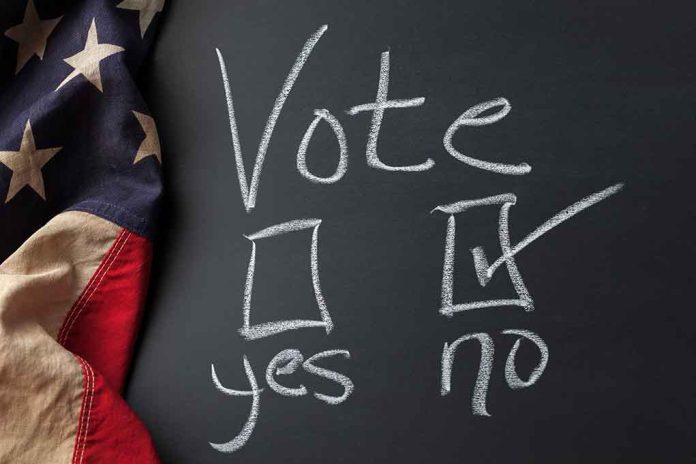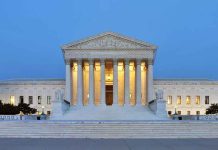
Progressive Los Angeles DA George Gascón ousted as voters reject his controversial criminal justice reforms, signaling a seismic shift in California’s approach to law and order.
At a Glance
- Nathan Hochman defeats George Gascón with over 60% of the vote
- Gascón’s progressive policies criticized for compromising public safety
- Violent crime in LA County increased 8% from 2019 to 2023
- Voters approve measure to increase penalties for repeat offenders
- Hochman promises to rebuild trust with law enforcement and victims
Voters Reject Gascón’s Progressive Vision
In a stunning rebuke to progressive criminal justice reforms, Los Angeles County voters have ousted District Attorney George Gascón, electing former federal prosecutor Nathan Hochman to lead the nation’s largest prosecutor’s office. Hochman secured a decisive victory with 61.5% of the vote, signaling a clear shift away from Gascón’s controversial policies that many blamed for a perceived rise in crime and public safety concerns.
Gascón, who took office in 2020 amid heightened awareness of systemic law enforcement issues following the deaths of George Floyd and Breonna Taylor, implemented sweeping reforms aimed at reducing incarceration rates and addressing racial inequities in the justice system. These included ending cash bail, halting the prosecution of juveniles as adults, and eliminating gang enhancements and three-strikes charges. However, his policies faced fierce opposition from law enforcement, prosecutors within his own office, and a vocal segment of the public.
George Gascón Loses Los Angeles District Attorney Race https://t.co/f6wJ0iEAzr
— The Hollywood Reporter (@THR) November 6, 2024
Rising Crime and Public Backlash
Critics argue that Gascón’s reforms created ethical dilemmas for prosecutors and led to more lenient sentences for serious crimes. The 8% increase in violent crime in Los Angeles County from 2019 to 2023 fueled public discontent and bolstered arguments that the DA’s policies were compromising public safety. This sentiment was reflected in the election results and the approval of a ballot measure to partially reverse Proposition 47, increasing penalties for repeat offenders and certain drug crimes.
Hochman’s campaign capitalized on these concerns, positioning himself as a “hard middle” candidate who opposes both extreme incarceration and Gascón’s perceived lenient policies. His victory was supported by local police unions, victims’ advocacy groups, and even former district attorney Jackie Lacey, underscoring the broad coalition that formed in opposition to Gascón’s approach.
A New Direction for Los Angeles
As he prepares to take office, Hochman has pledged to eliminate “extreme pro-criminal policies” and address gang-related violent crimes. He plans to allow prosecutors to seek the death penalty in appropriate cases and pursue wider sentencing enhancements, marking a significant departure from Gascón’s policies. Hochman’s approach aims to strike a balance between reform and public safety, a stance that resonated with voters across the political spectrum.
“As D.A., I look forward to representing all of the people, whether they voted for me or not, since their safety will be my responsibility.” – Nathan Hochman
The election outcome in Los Angeles reflects a broader national conversation about criminal justice reform and public safety. While progressive reforms gained momentum in the wake of high-profile police killings, the pendulum appears to be swinging back towards a more traditional law-and-order approach. This shift is particularly notable in California, a state known for its progressive politics but where voters have consistently elected tough-on-crime district attorneys.
Implications for Criminal Justice Reform
Gascón’s defeat raises questions about the future of progressive criminal justice reform in major urban centers. The election results suggest that while voters may support some reforms in principle, they are less willing to tolerate policies perceived as jeopardizing public safety. This tension between reform and security is likely to shape criminal justice debates in the coming years, as cities and states grapple with how to address systemic inequities while maintaining law and order.
As Los Angeles prepares for a new era under DA-elect Hochman, the challenge will be to find a balance that addresses legitimate concerns about crime while not entirely abandoning the goals of reducing mass incarceration and addressing racial disparities in the justice system. The outcome of this balancing act in America’s second-largest city will likely have ripple effects across the nation, influencing criminal justice policies and political strategies for years to come.

















